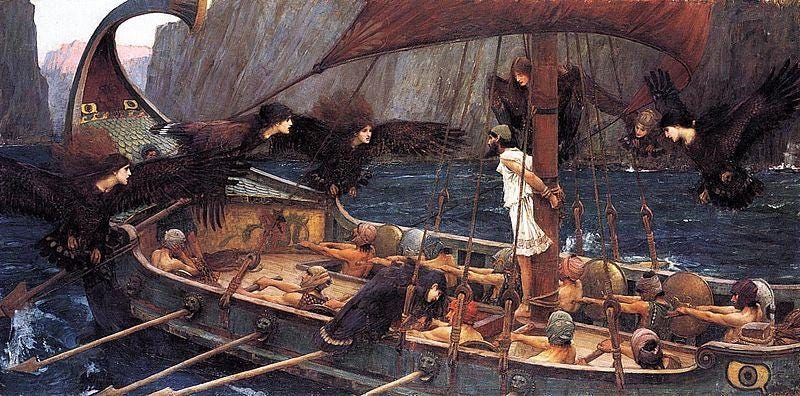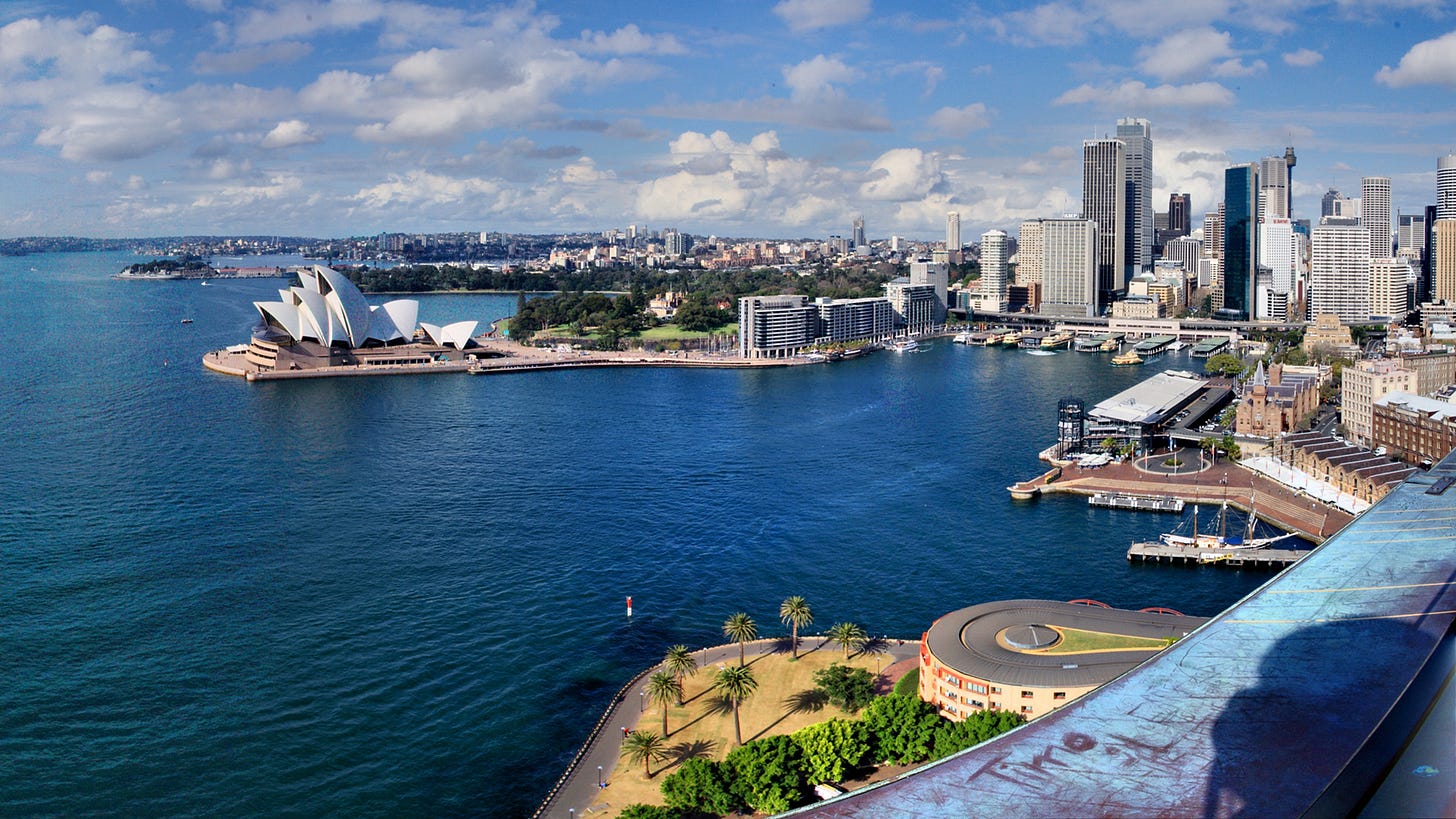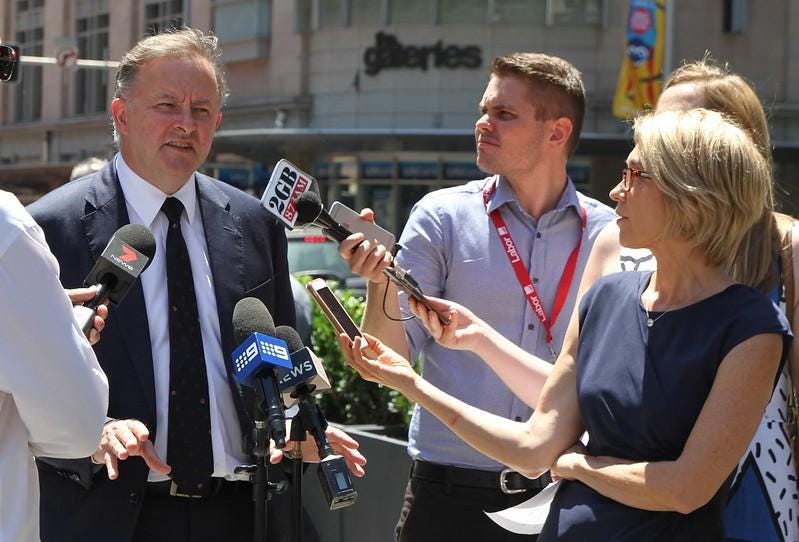Australia Is Close to Adopting a Digital Ulysses Pact for Children
Banning social media for kids is not only a smart move but the right thing to do.
Prime Minister, Anthony Albanese, said earlier in November that Australia is legislating for a ban on social media for children under 16 (Reuters). The proposal enjoys bipartisan support in the parliament and if it passes in the House of Representatives and the Senate this year, it could come into effect in late 2025 (ABC News) as the first ban of its kind, globally.
In many countries, minors can access the commonly used social media platforms with parental consent. Australia is pushing for an absolute ban without exceptions. There will not be a “grand-fathering arrangement”, meaning that kids under 16 who have access to social media at the time of the ban, will no longer have access once the law is effective.
There would not be any risk of penalties for children or parents under the new law, the onus will be on the platforms to ensure that children cannot have access. Different methods are currently being trialed to enforce the ban such as an age verification system based on biometrics or government identification. The technicalities in this regard are still being worked out and this work would continue into 2025.
Platforms that would be affected by the ban are obviously Instagram, TikTok, Snapchat, Facebook, but the ban could potentially also include YouTube, Reddit, Discord, and many others. The definition of a “social media service” in the Online Safety Act 2021 (NO. 76, 2021) - Sect 13 is very broad:
“(1) For the purposes of this Act, social media service means:
(a) an electronic service that satisfies the following conditions:
(i) the sole or primary purpose of the service is to enable online social interaction between 2 or more end-users;
(ii) the service allows end-users to link to, or interact with, some or all of the other end users;
(iii) the service allows end-users to post material on the service; (..)”
The proposal is radical and as one would expect, it has been met with some resistance and skepticism. From kids, obviously, and from a coalition of 140 academics who criticized the notion of a blanket ban claiming it would be better to strive for higher safety and security standards for children on the platforms in general. Regardless, the Australian lawmaking powers seem determined to go through with the new law. Reuters reports:
"Social media is doing harm to our kids and I'm calling time on it," Albanese told a news conference.
Albanese cited the risks to physical and mental health of children from excessive social media use, in particular the risks to girls from harmful depictions of body image, and misogynist content aimed at boys.
"If you're a 14-year-old kid getting this stuff, at a time where you're going through life's changes and maturing, it can be a really difficult time and what we're doing is listening and then acting."
I call the Australian proposal a “digital Ulysses pact”.
For those who don’t know, Ulysses is the protagonist in the Odyssey by Homer written 800 years B.C. On their way home after the Trojan War, Ulysses and his crew have to sail past the Sirens whose seductive singing leads sailors astray into shipwrecks. Before leaving the island of Aeaea, the witch Circe gives Ulysses some advice (link to story):
“First you will come to the Sirens who enchant all who come near them. If any one unwarily draws in too close and hears the singing of the Sirens, his wife and children will never welcome him home again, for they sit in a green field and warble him to death with the sweetness of their song.
There is a great heap of dead men’s bones lying all around, with the flesh still rotting off them. Therefore pass these Sirens by, and stop your men’s ears with wax that none of them may hear; but if you like you can listen yourself, for you may get the men to bind you as you stand upright on a cross-piece half way up the mast, and they must lash the rope’s ends to the mast itself, that you may have the pleasure of listening. If you beg and pray the men to unloose you, then they must bind you faster.”
Ulysses does as he is told by Circe; stops the ears of his crew with vax and afterward the crew binds Ulysses tightly on hands and feet to the ship mast. As they pass through the Island of Sirens, their beautiful song drives Ulysses into madness and he orders his men to set him free so he can follow their calling. But the men and Ulysses have made a pact – therefrom an “Ulysses pact” – so instead of untying him, the men bind him with even stronger bonds:
"They sang these words most musically, and as I longed to hear them further I made by frowning to my men that they should set me free; but they quickened their stroke, and Eurylochus and Perimedes bound me with still stronger bonds till we had got out of hearing of the Sirens' voices. Then my men took the wax from their ears and unbound me.”

The moral of the story?
Ulysses and his crew only survived by following the wisdom of Circe. She knew that the Siren’s song would be irresistible and drive the sailors temporarily insane. Ulysses and his men took the proper precautions, prepared for the dangers ahead, and thereby survived. Had Ulysses not been tied to the mast, and the men’s ears not stopped with vax, they would have been lured into the certain death.
If we regard social media as a Siren’s song, Australia’s new age requirement law could form the basis for a digital Ulysses Pact to protect children. We can teach children healthy online habits and advise them to spend less with their phones but in the end, it won’t make a difference. Social media apps are designed to hack our brains and it’s very hard to consciously override centuries of biological encoding. Regulation that denies children access to social media may be the only chance to provide young people the experience of a life without a digital dependency.
My View





